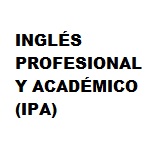
Name
Professional and academic English
Members
Alcaraz Ariza, María Ángeles; Campos Pardillos, Miguel Ángel; Gómez González-Jover, Adelina; Guillén Nieto, Victoria; Iliescu Gheorghiu, Catalina; Martínez Motos, Raquel; Mateo Martínez, Jose; Morell Moll, Maria Teresa; Vargas Sierra, Chelo; Yus Ramos, Francisco Benigno
Objectives
To analyse industrial and technological languages, the language of the forum, the language of health sciences, the environment and leisure. Since its creation, the group has carried out research work in the field of applied languages. The result of this research has been a series of bilingual dictionaries specialising in various fields, ranging from law to economics, leisure, the stock market, marketing and advertising, insurance, industry and linguistics.
Lines of research
a) INDUSTRIAL AND TECHNOLOGICAL LANGUAGES
As the name itself indicates, industrial and technological languages are those used by professionals in the various branches of industry and technology (footwear, textiles, natural stone, canning, toys, tourism, transport, commerce, etc.). These languages obviously belong to the common core of a language, but they differ from it not only for terminological reasons, but also for reasons of rhetoric and communicative strategies, both oral and written. The communicative strategies take the form of what in linguistics are known as professional genres, marked by linguistic and cultural conventions, including social and linguistic politeness. There are many important aspects of industrial languages, the most important of which, as has just been pointed out, are: standardised terminology and communicative strategies. The study of these aspects requires a twofold approach:
1. the oratorical (systematisation of terms and concepts)
2. the supra-oral (professional genres and communicative strategies)b) THE LANGUAGE OF THE FORUM
In a society characterised by the omnipresence of law in the regulation of human rights and in the multiple relations between the administration and the citizen, this new epistemological subspecialty, also known as forensic linguistics, has made its way. The central core of this field of knowledge is constituted by the following aspects:
1. the analysis of oral discourse (the voice);
2. the analysis of stylistic features of written speech (graphology and corpus linguistics);
3. linguistic interpretation to determine the meaning of legal texts.
c) LANGUAGE IN HEALTH SCIENCES
This line has been an extension of the clinical language line developed in previous years. Its field of study is developed around two areas:
1. the study of the language of pharmacy (terminology and communicative strategies)
2. the study of language between the patient and the doctor, both in psychological matters and in those that exclusively affect the so-called normal voice and the pathologies related to it that have a phonetic reflection; the discipline that studies it is also called clinical linguistics.
d) THE LANGUAGE OF THE ENVIRONMENT
Within the UA Technology Park, and coinciding with the inauguration of the photovoltaic plant that Unión FENOSA, the CAM and the University will install in September, the Group wants to carry out its research around three concepts: a) environment; b) energy; c) sustainability.
Research in this area focuses on three directions:
1. the orational (study of the lexicon in English, Spanish and Valencian)
2. supra-orational (study of communicative strategies)
3. professional protocol systems
e) THE LANGUAGE OF LEISURE
The IPA Group continues its line of research in the epistemological area of leisure, a fundamental activity in the social and economic reality of the Valencian Community, making it essential to study it through the discourses produced in this field.
This line involves a study in two directions:
1. the orational (through the study of terms and concepts and their systematic representation)
2. supra-oral (through the analysis of communicative strategies, stylistic, dialectal and social features, linguistic and cultural conventions, professional genres…)
